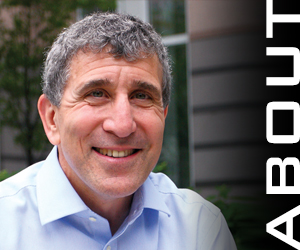Today's CPA | Summer 2016
The CPA Pipeline
Are you part of the problem or the solution?

Todd Shapiro
ICPAS President & CEO
Inside Insights From the CEO
We have an economy that is growing. In study after study, the accounting profession is viewed as one of the top professions to work in. There are more accounting majors today than ever before—over 250,000. So what’s the problem? And why does “pipeline” continually come up as one of the top issues facing the profession?
We have to look at the environment a bit more closely to get at the answers. Yes, there are more accounting majors than ever before, but 49 percent of those accounting majors will never sit for the CPA Exam, and one-third of those who do sit for the exam will never complete it. As a result, only one-third of accounting majors ever pass the exam. With such a coveted credential, why do so few complete the process?
There are many factors driving down the number of new CPAs. We can blame a vibrant economy where many companies willingly hire accounting graduates without requiring a CPA. We can blame the growth in advisory services at firms that don’t require a CPA. We can blame the 150-hour rule. We can blame the exam format. But in the end, we have to look inward and challenge ourselves on how much we are supporting, pushing and requiring accounting majors to become CPAs.
In an AICPA survey, staff identified work environment as the number one factor influencing whether they follow through and become CPAs—a work environment that encourages and supports them in attaining the credential. Reasons respondents gave for not finishing the exam included conflicts with work, cost of the exam, the need for time to study, and multiple tries to complete all parts. Only 27 percent of test-takers finish all four parts on the first try. On average, passing candidates require about 6.5 attempts to pass the four parts. The cost to complete four parts and a review class can reach almost $5K.
This is where we become either part of the problem or part of the solution. We have to ask ourselves, “Are we creating and fostering an environment that encourages staff to complete the CPA Exam?” Many companies are happy to hire accounting majors and not require a CPA. Is that best for your company’s and your staff’s long-term prospects?
Public accounting firms, too, have to look inwards. In a recent Illinois CPA Society survey of the top 25 public accounting firms in the Chicagoland area, 98 percent said they’re struggling to meet CPA needs or would like a larger pool of CPAs to recruit from. Yet 12 percent said they only provide financial assistance for a review course (not the exam) and 12 percent said they provide no financial assistance at all. Of those that do provide financial assistance, only two firms will pay for more than one attempt of a section. Yet, the average candidate requires 6.5 attempts to pass all four parts. Lastly, 20 percent said they don’t provide PTO or flexible work schedules for the review course or the exam.
So, at the end of the day, are we putting our money (literally not proverbially) where our mouths are? If we’re serious about the need for more accounting majors to become CPAs, we need to provide the financial and environmental support to complete the process. Yes, it will require an investment of time and money. However, with three-out-of-four current CPAs projected to retire in the next 15 years, the pipeline issue is bound to only get worse. In the end, this is time and money we can’t afford not to invest.
The pipeline also hinges on the issue of diversity—or lack thereof. I’ll talk more about that in my next column.